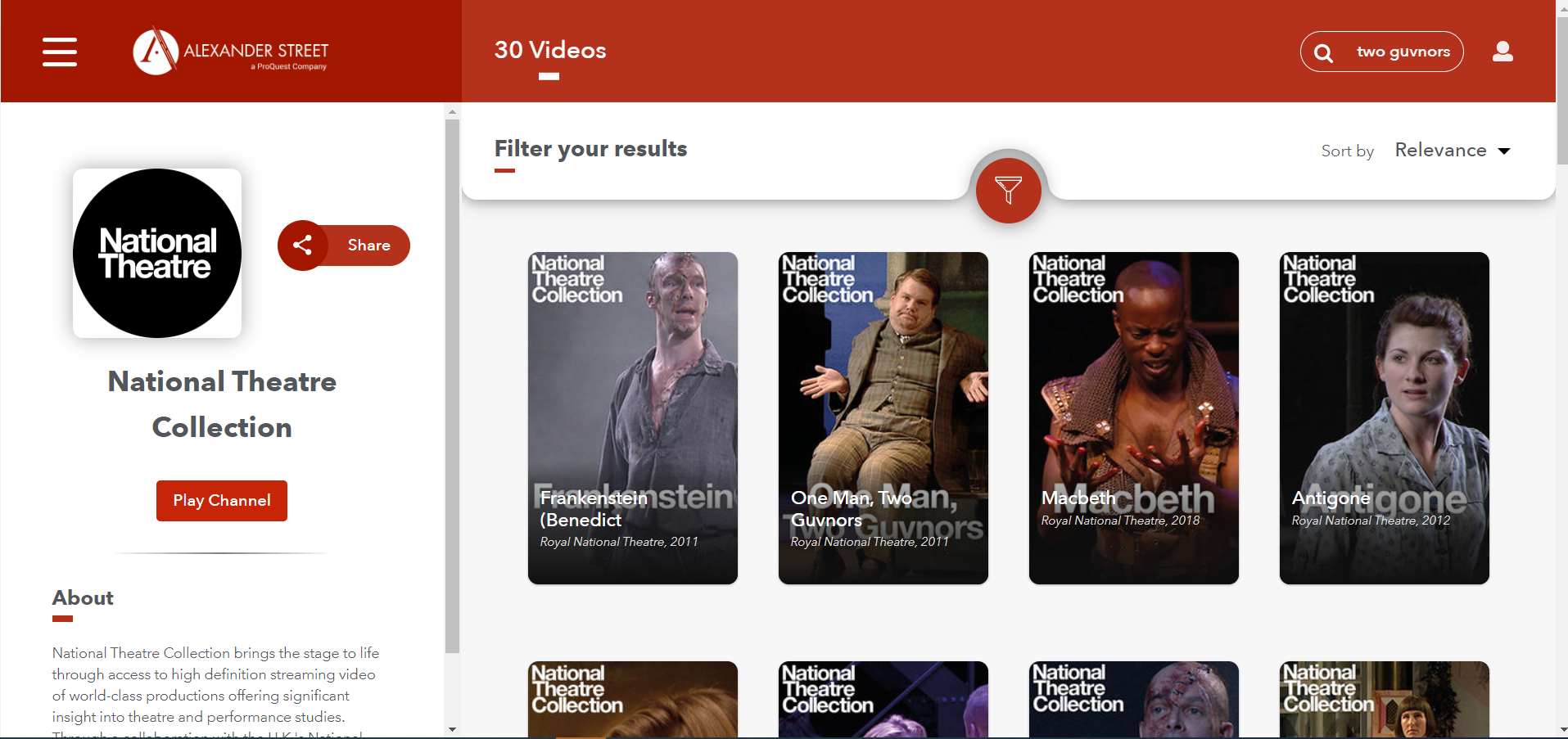The Library has just purchased the National Theatre Collection which is now available to access on the film platform of Alexander Street Press, Academic Video Online. Direct access to the National Theatre Collection is here.

National Theatre Collection brings the stage to life through access to high definition streamed video of world-class theatre productions and unique archival material, offering insight into British theatre-making and performance studies. The collection contains 30 video performances. As a supplement to the filmed productions, exclusive digitised archival materials such as prompt scripts, costume designs, and more are available to provide behind-the-scenes background and contextual information. The featured 30 performances are:
- Comedies:She Stoops to Conquer (2012), One Man, Two Guvnors (2011), and London Assurance (2010)
- 20th century classics: Yerma (2017), The Cherry Orchard (2011), The Deep Blue Sea (2016), Les Blancs (2016), A Streetcar Named Desire (2014), Cat on a Hot Tin Roof (2018), Consent (2017)and Translations (2018)
- Shakespeare plays:Hamlet (2010), Othello (2013), King Lear (2011), Macbeth (2018), Julius Caesar (2018), Coriolanus (2014), Twelfth Night (2017), The Winter’s Tale (2018) and Romeo and Juliet (2017)
- Literary adaptations:Frankenstein [Jonny Lee Miller as Creature, 2011], Frankenstein [Benedict Cumberbatch as Creature, 2011], Jane Eyre (2015), Treasure Island (2015), Peter Pan (2017), Wonder.land (2015) and Small Island (2019)
- Greek classics:Antigone (2012) and Medea (2014)
- World historical drama:Dara (2015)


 The UTREES database is the database form of the UTREES project which originated with the print form in 2008, compiled and edited by Gregory Walker and J. S .G. Simmons. It lists details of over 5,800 doctoral and selected masters’ theses from British and Irish universities from 1907 onwards, covering research relating to Eastern and Central Europe, Russia, and the area of the former USSR, including Central Asia, the Caucasus and Siberia. The database is continuously updated and is freely accessible.
The UTREES database is the database form of the UTREES project which originated with the print form in 2008, compiled and edited by Gregory Walker and J. S .G. Simmons. It lists details of over 5,800 doctoral and selected masters’ theses from British and Irish universities from 1907 onwards, covering research relating to Eastern and Central Europe, Russia, and the area of the former USSR, including Central Asia, the Caucasus and Siberia. The database is continuously updated and is freely accessible.

 The Library has just purchased a beautiful reproduction of a late 12th-century Japanese emakimono
The Library has just purchased a beautiful reproduction of a late 12th-century Japanese emakimono 
